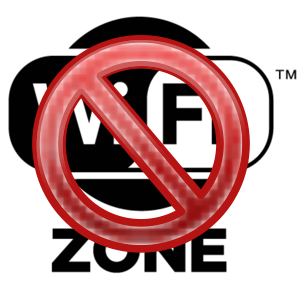Marriott blocked guests' personal hotspots, fined by FCC


While some hotel chains have embraced providing guests with cheap (or free) connectivity, others continue to charge exorbitant daily rates for it. The Marriott's Gaylord Opryland Hotel and Convention Center was actively blocking all hotspots in the convention center to force guests to use its own expensive wi-fi network.
The FCC has fined Marriott $600,000 for the practice, determining that this is in violation of the right for individuals to take advantage of their own connectivity. While the Marriott hotel didn't jam signals, a violation of law, it used its network hardware so that the hotel hotspots were the only ones that guest devices could see and access.
The FCC investigation was the result of a complaint filed last year by a guest who found it telling that the convention center in the Marriott was a dead zone for wi-fi hotspots with the exception of Marriott's own. Reports indicate that the Marriott charged exhibitors as much as $1,000 for wi-fi access during the convention at the time.
In addition to the fine, Marriott must file a compliance report with the FCC every three months for three years.
This is the first case of this type that has resulted in FCC sanctions.
Tech Pro Research
Business travelers have dealt with expensive connectivity in hotels for years, especially during conventions. Guests either shell out a high daily fee, we've recently seen fees as high as $20 per day, or use personal hotspots to avoid the hotel network. Using a personal hotspot often has the advantage of faster speeds, even faster than the expensive paid hotel system.
That's why the FCC case against the Marriott is significant, as the blocking of personal hotspots took away guests' fallback strategy for connectivity.
A statement from Marriott indicates the firm doesn't believe it did anything illegal, and offered the excuse of protecting its network from "rogue wireless hotspots":
"Marriott has a strong interest in ensuring that when our guests use our Wi-Fi service, they will be protected from rogue wireless hot spots that can cause degraded service, insidious cyber-attacks and identity theft," the statement said. "Like many other institutions and companies in a wide variety of industries, including hospitals and universities, the Gaylord Opryland protected its Wi-Fi network by using FCC-authorized equipment provided by well-known, reputable manufacturers.
"We believe that the Opryland's actions were lawful. We will continue to encourage the FCC to pursue a rule making in order to eliminate the ongoing confusion resulting from today's action and to assess the merits of its underlying policy."
See related:
- What a good mobile user experience must have to make a device popular
- iPhone 6: Cool features you should be using
- Apple iPhone 6 Plus (hands on): Already replaced my Android phone
- What's right (and wrong) with the iPhone 6 and iPhone 6 Plus
- Business models disrupted by the iPhone 6, the Apple Watch, and Apple Pay